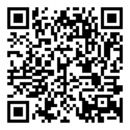Gastvorträge am DOC Center
Das Doctoral Center lädt herausragende nationale und internationale Expert_innen ein, ihr Wissen und ihre Perspektiven mit unserer Doktorand_innen-Community zu teilen. Die Invited Lecture Series bietet Einblicke in aktuelle Spitzenforschung, interdisziplinäre Ansätze und Karriere-relevante Kompetenzen. Durch den Austausch mit Fachleuten aus unterschiedlichen Disziplinen fördert die Reihe Dialog, Inspiration und Zusammenarbeit.
Neuromorphic Computing: Information Processing in Intelligent Matter
Gastvortrag von Prof. Dr. Wilfred van der Wiel
Termin: Donnerstag, 22. Januar 2026
Zeit: 10:30 bis 12:00
Raum: Karlsplatz 13 - Hörsaal 15 (AB0314, öffnet eine externe URL in einem neuen Fenster)
Throughout history, humans have harnessed matter to perform tasks beyond their biological limits. Initially, tools relied solely on shape and structure for functionality. We progressed to responsive matter that reacts to external stimuli and are now challenged by adaptive matter, which could alter its response based on environmental conditions. A major scientific goal is creating matter that can learn, where behavior depends on both the present and its history. This matter would have long-term memory, enabling autonomous interaction with its environment and self-regulation of actions. We may call such matter ‘intelligent.’
In this lecture, we introduce a number of experiments towards ‘intelligent’ disordered nanomaterial systems, where we make use of “material learning” to realize functionality. We have earlier shown that a ‘designless’ network of gold nanoparticles can be configured into Boolean logic gates using artificial evolution. We later demonstrated that this principle is generic and can be transferred to other material systems. By exploiting the nonlinearity of a nanoscale network of dopants in silicon, referred to as a dopant network processing unit (DNPU), we can significantly facilitate handwritten digit classification. An alternative material-learning approach is followed by first mapping our DNPU on a deep-neural-network model, which allows for applying standard machine-learning techniques in finding functionality. We also can optimize DNPUs by using gradient descent in materials, using experimental gradient extraction. Finally, we show that our devices are not only suitable for solving static problems but can also be applied in highly efficient real-time processing of temporal signals at room temperature.
Professor Wilfred van der Wiel is a distinguished physicist and full professor of nanoelectronics at the University of Twente. He is also the director of BRAINS, the Center for Brain-Inspired Computing. He holds a second professorship at the Institute of Physics at the University of Münster, Germany. His research focuses on unconventional computing paradigms, including hardware implementations of neuromorphic and quantum information processing, as well as materials for in-materio computing.
Prof. van der Wiel has published over 120 peer-reviewed articles and has received several prestigious research grants, including from the European Research Council (ERC) and funding from the Dutch Science Council. He is widely recognized for his interdisciplinary approach, which bridges physics, materials science, computer science, and biology to explore new frontiers in information processing. He frequently speaks at international conferences and actively contributes to EU-funded research and innovation networks.
Die Veranstaltung findet auf Englisch statt.
Die Teilnehmendenzahl ist begrenzt. Wir bitten um Anmeldung mit unten stehendem Formular.
Anmeldung für Invited Lecture des DOC Center

